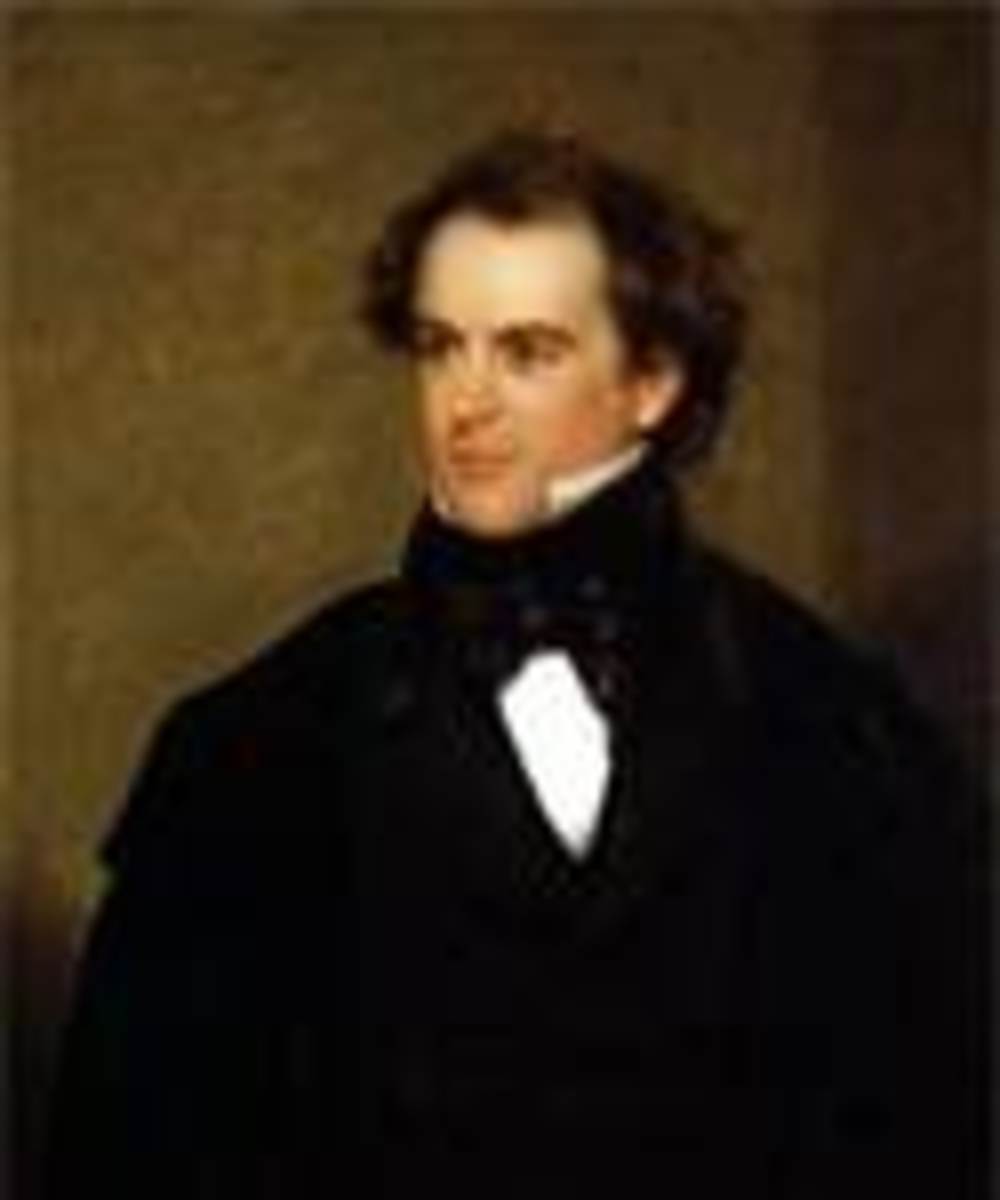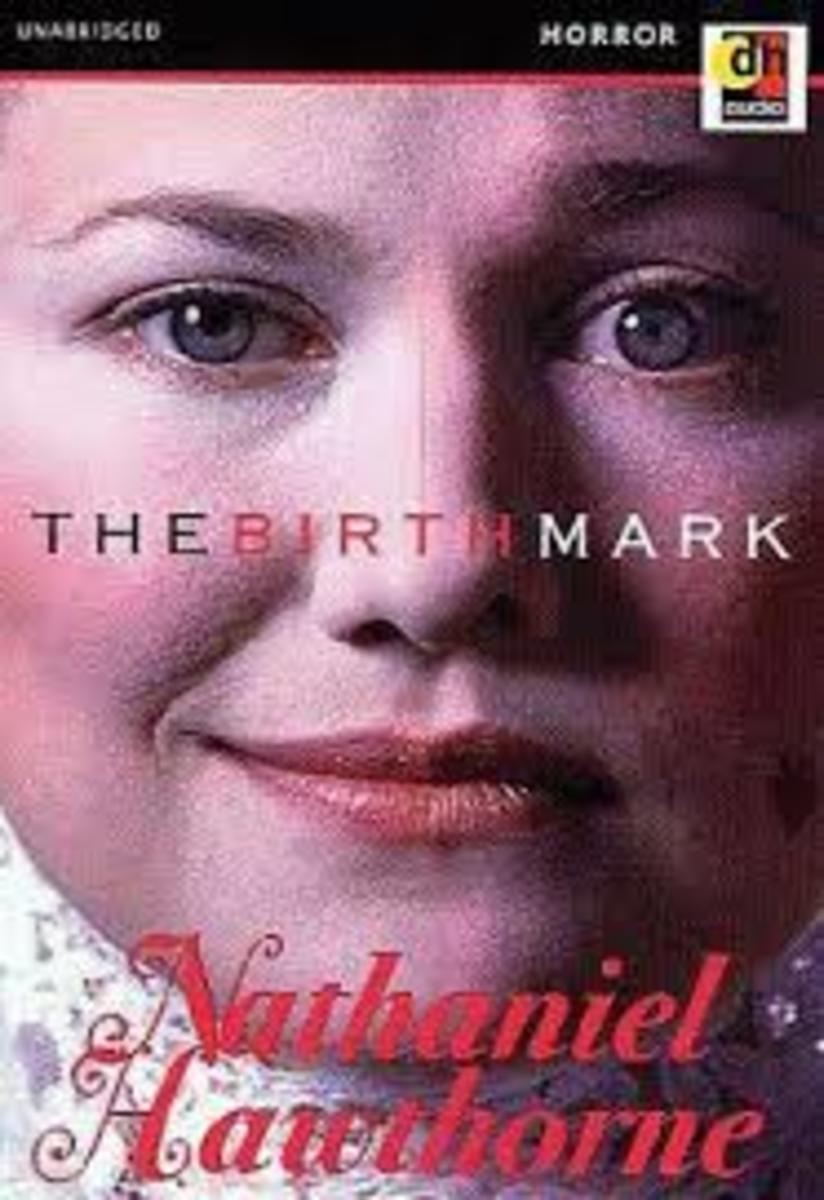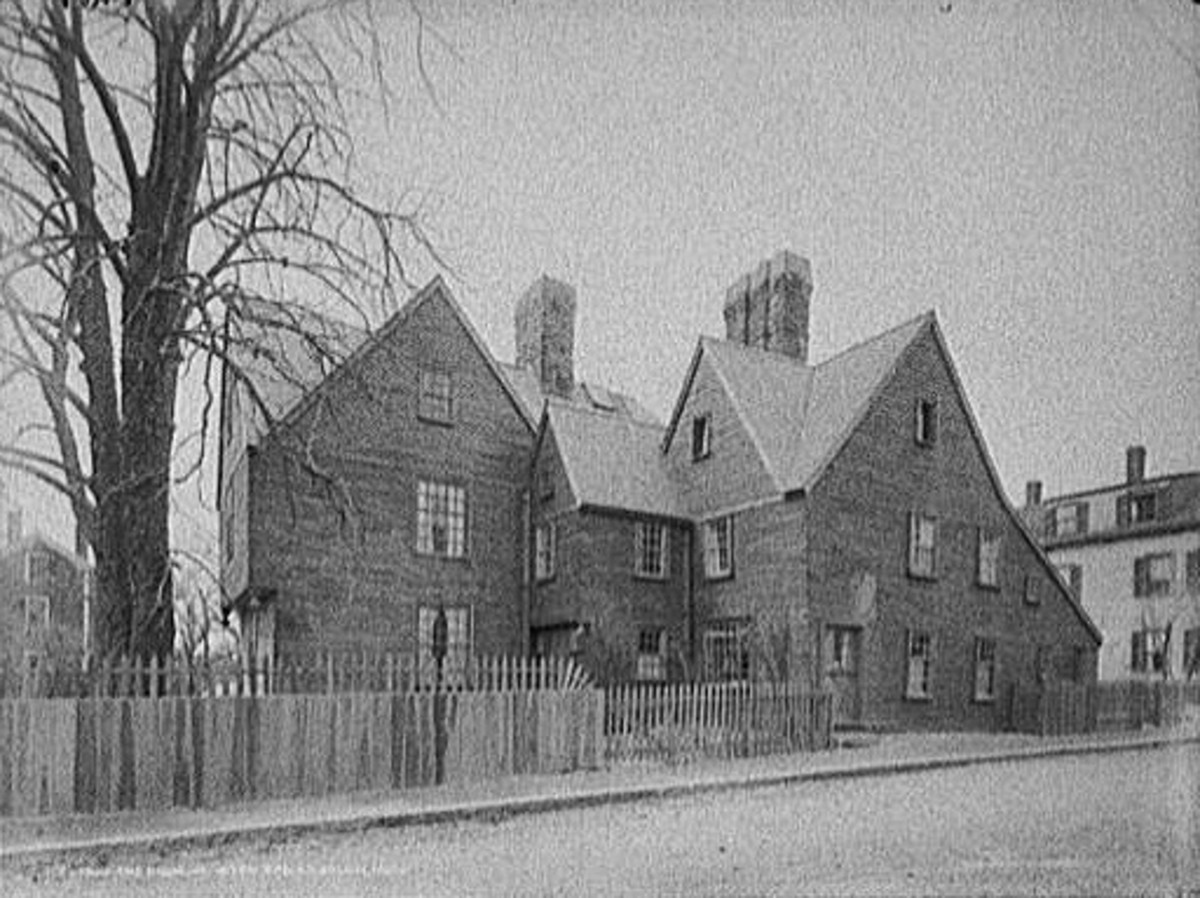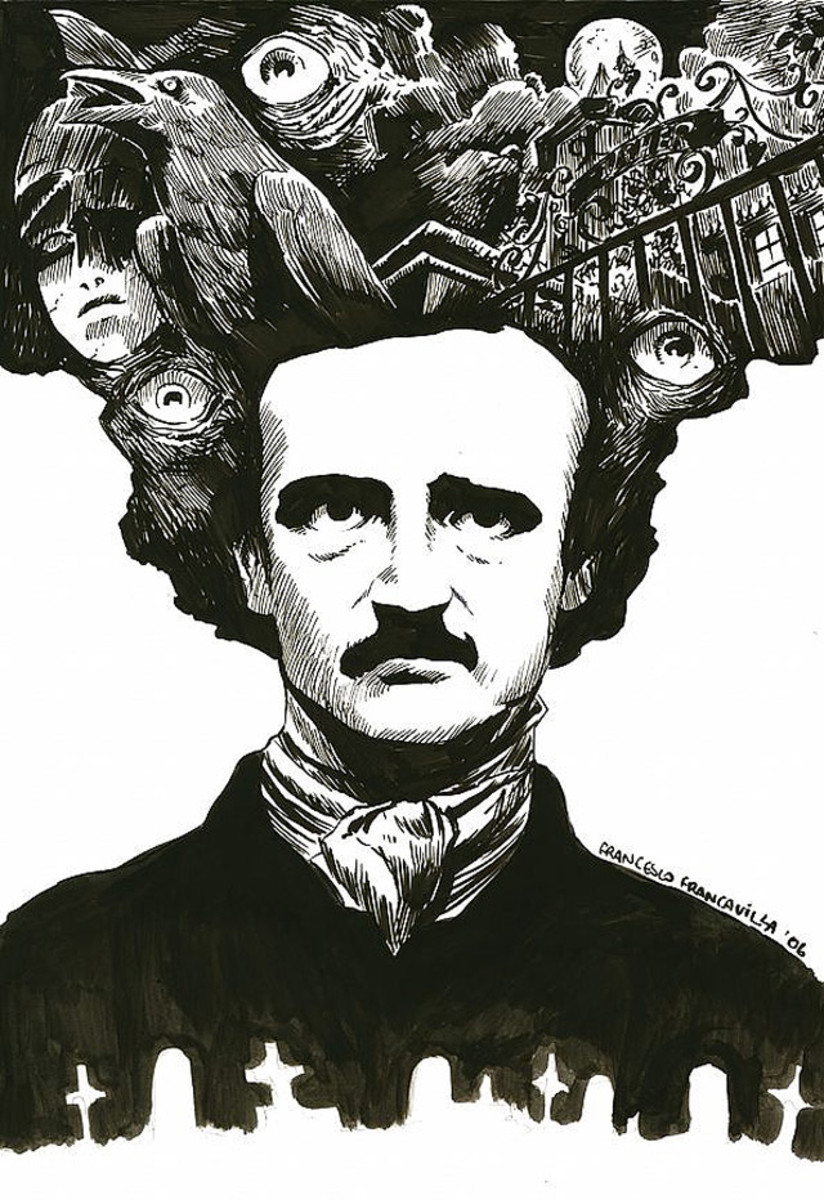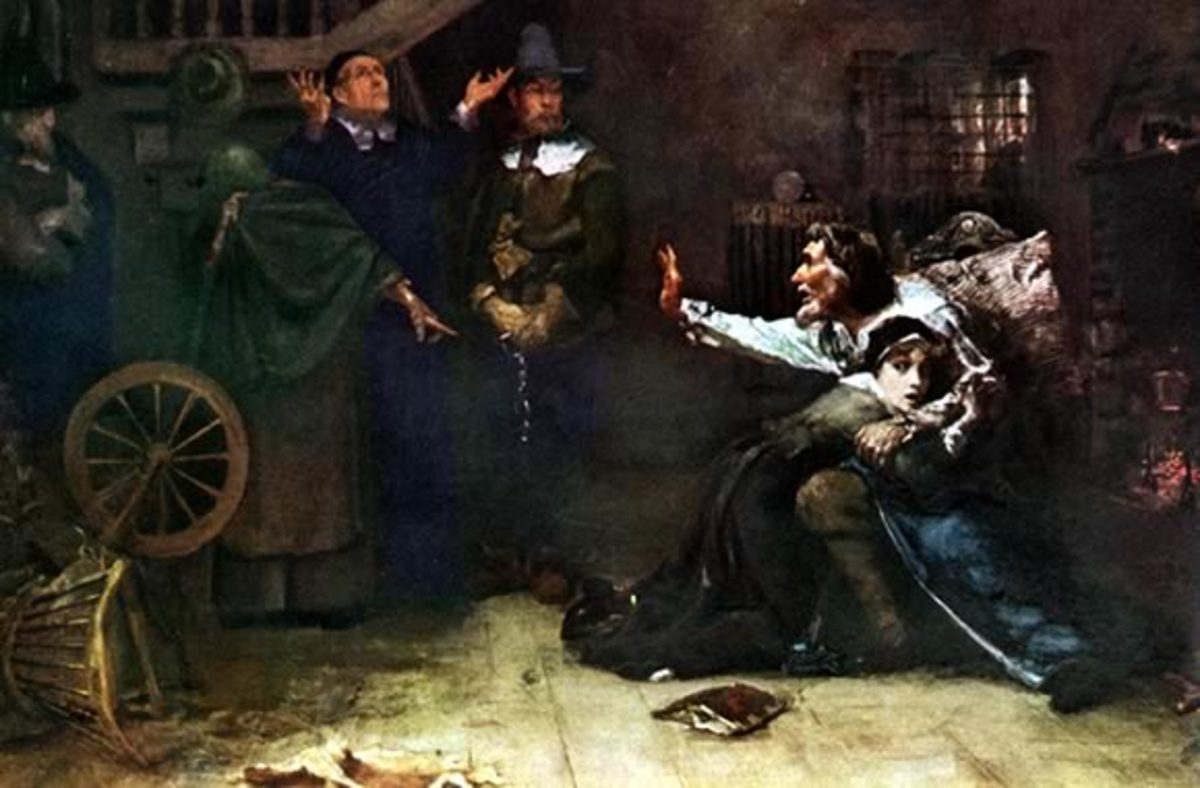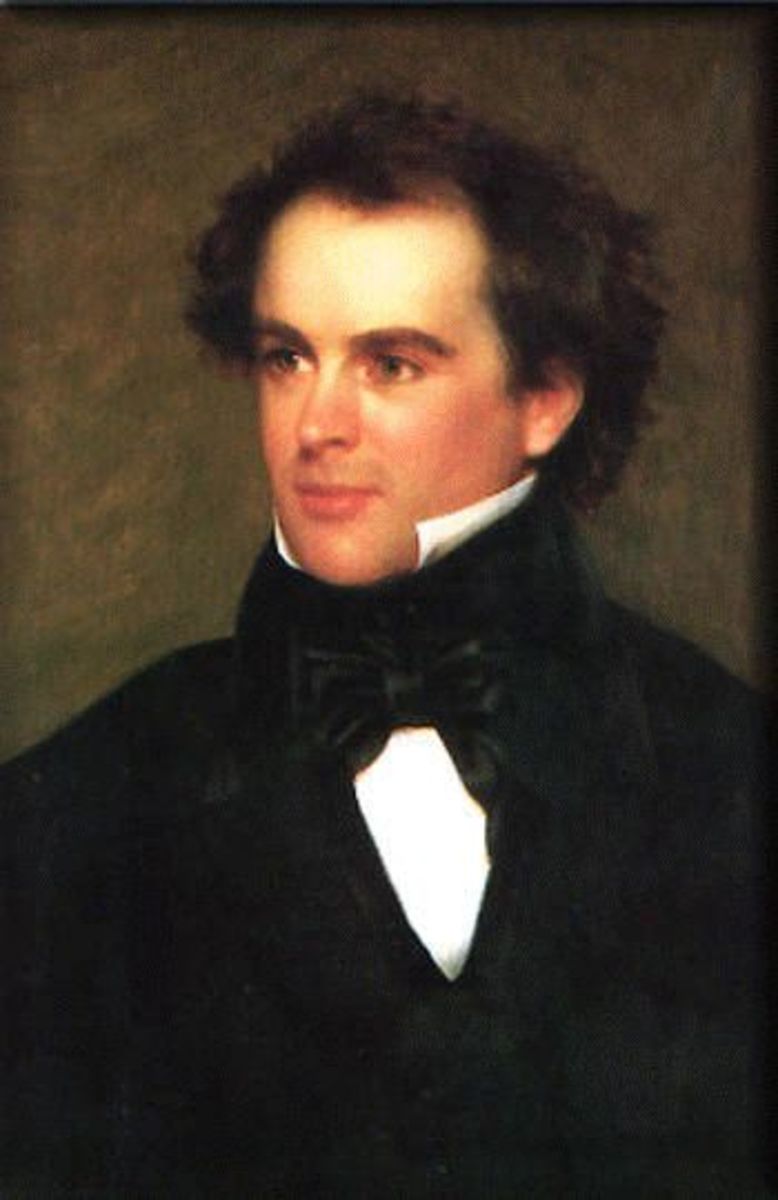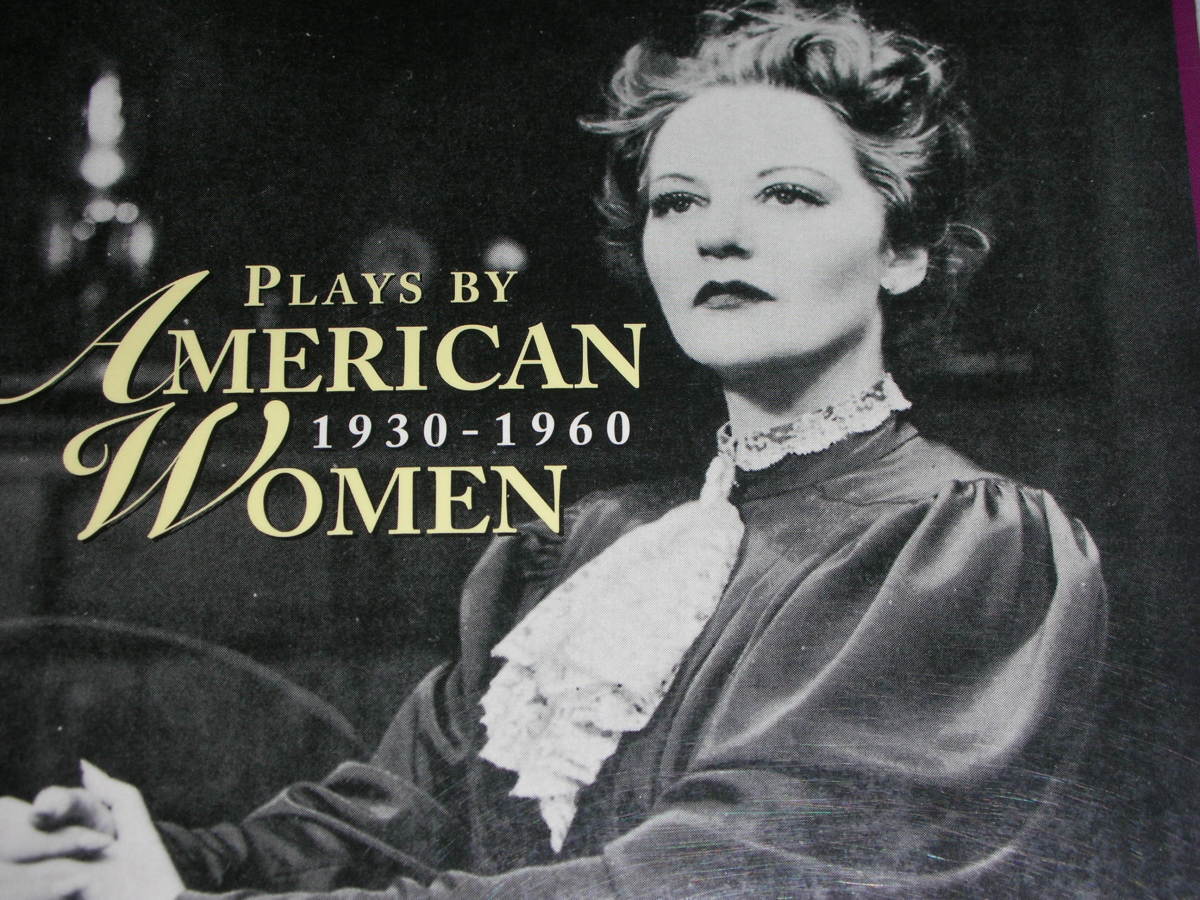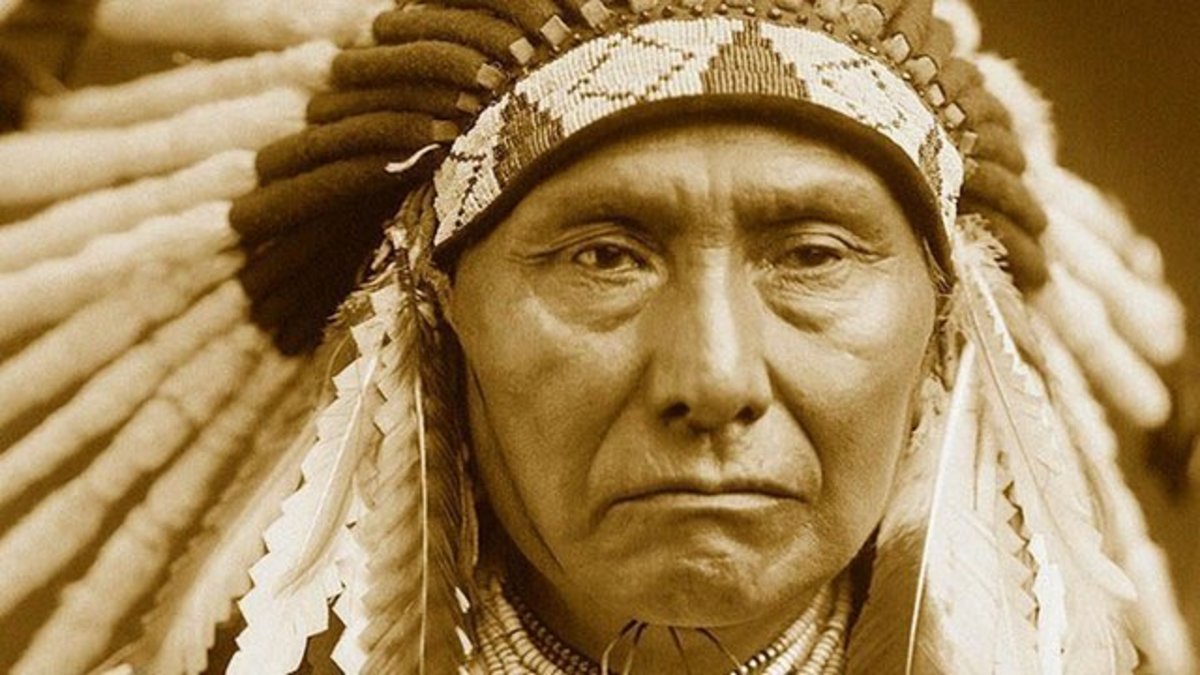American Short Fiction
The Minister's Black Veil by Nathaniel Hawthorne
The Minister’s Black Veil by Nathaniel Hawthorne is an illustration of what occurs in a Puritanical society. It takes one difference, a veil, to create legends and gossip about Pastor Hooper. Everyone believes that he must be hiding something, and they miss the whole point. As a leader, he wants everyone to know that human beings are not infallible and that everyone has something to hide. The town’s people would rather subscribe to the gossip mill than to asks a simple question of a man who was supposed to be viewed as their guide in spiritual matters. “It was remarkable that, of all the busybodies and impertinent people in the parish, not one ventured to put the plain question to Mr. Hooper wherefore he did this thing” (Hawthorne). In order to stay true to his own principles, Hooper is willing to keep this veil on for the span of his lifetime; however, he loses his life in doing this. He loses his fiancé, and in some aspects, the true respect of his church members. Hooper becomes a symbol of what the townspeople fear in themselves, so they shun him. This is indicative of American society during the Puritan era and in contemporary society, and Hawthorne’s text acts as a warning to those who would use others as an excuse to avoid the exposure of their own sins or iniquities.
Daisy Miller by Henry James
When Winterbourne meets Daisy, he seems to be intrigued with the fact that she is not preoccupied with social pleasantries; however, it is this very characteristic that causes him to deem her unsuitable and unworthy of his attentions. Winterbourne seems attracted to the unconventional; however, he does not have the courage to live as an unconventional human being as appearances are of great importance to him. Daisy ends up in Rome with her brother and mother, and here we see the Americaness that seems to be illustrated as distasteful. The American community in this foreign setting is of a gossipy and puritanical nature. Because Daisy elects to openly spend time with Giovanelli, she opens herself up to the American gossip mill. She is also flirtatious in her interaction with men and a bit arrogant. When they are in Switzerland, she poses a semi-question to Winterborne regarding whether he has heard of New York, but her tone is meant to mirror American arrogance. Her brother, Randolph, is presented to the reader as an unruly brat who constantly desires sweets even though he is losing his teeth, and he boasts about his rich father and wanting to return to America because everything is wonderful there. I do not think that Randolph’s or Daisy’s behavior can be blanketly attributed to all Americans after the Civil War; however, I think that their behavior is indicative of those American’s who traveled abroad in search of acculturation that they felt could not be gained without being well traveled while simultaneously adhering to the freedom associated with America. At the same time, Winterbourne is American; however, he is sort of caught in the middle of Puritanism and his attraction to the free will of a woman. Daisy ends up dying of Malaria, and Winterbourne realizes that he was remiss in forming a negative opinion of her. He feels that his Puritanical ideals acted as a blockade to what may have developed with Daisy.
Hawthorne
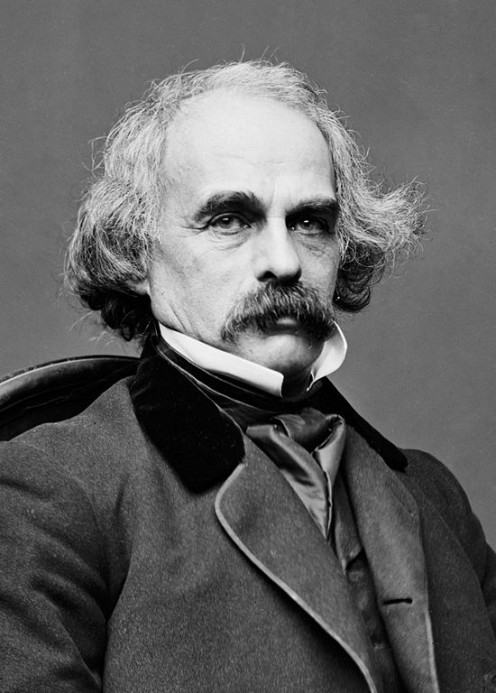
The $30,000 Bequest by Mark Twain
Aleck and Sally got married young; however, they were a family that was prone to save money and work hard. Aleck invested in property, and Sally worked everyday. They were extremely frugal because they were trying to build their family fortune. Aleck’s uncle contacted them stating that he was soon to die and would leave them $30,000 if they agreed not to speak of the promise or attend the funeral. Aleck and Sally had always been very involved with their children; however, they began to dream incessantly at the thought of this money to the point where they began to neglect the wealth that they had in their children. They begin to watch the newspaper for the announcement that his uncle is dead. When the paper arrives after a week of waiting, there is no news of his death, and Sally gets visibly upset. Aleck expresses disappointment in his behavior. The fact is that uncle Tilbury is dead, and a mistake was made with the paper that would never allow for his death notice. Sally decides he wants to asks around about his uncle, and Aleck reminds him that one of the stipulations is not to do that. She reminds him that they have their present money which is multiplying, “fictitious” money. They overlooked suitors for the daughters because they were no longer amiable because they did not have this family’s wealth. They became obsessed with how to acquire and spend this nonexistent money. This story is an illustration of the age old American dream. They spent so much time dreaming that they forgot to live their real lives. Twain’s short story acts as a warning to people who are engulfed in the acquisition of wealth. The fact is the uncle had not wealth, and the thought of wealth that Aleck and Sally could increase had ruined their very existence.
Twain
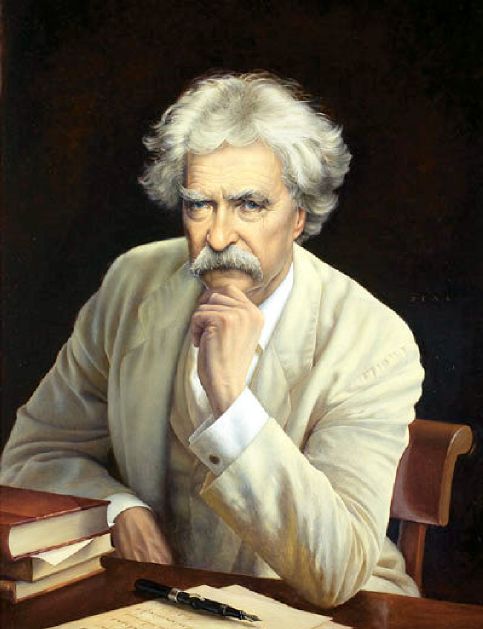
An Occurrence at Owl Creek Bridge Ambrose Bierce
Farquhar cannot fight in the civil war. A confederate soldier in disguise tells him that one could set some driftwood afire to warn the confederates that owl creek had been taken. He is to be executed at owl creek, but the rope breaks. He falls into the river, and escapes back to the arms of his wife. When he reaches his wife, reality sets in, and he realizes that he is actually dangling from a rope at owl creek. This story embraces the romanticism with being the American hero, and then yanks it away from the reader with the realization that Farquhar is actually executed as planned. The element of financial prosperity is apparent in this short story as well; however, the fact that Farquhar is rich and safe on his plantation if not enough for him. He needs more, so he seeks heroics that get him killed. He is caught up in the romanticized notion of being the American heroe.
The Legend of Sleepy Hollow by Washington Irving and Bartleby the Scrivener by Herman Melville
The Legend of Sleepy Hollow is set in a small town in New York. The school teacher, Ichabod Crane is from Connecticut, and he is an illustration of American territorial pride. He thinks that he is smarter than the people of this small town because he is from Connecticut. There is also an aspect of machismo between Ichabod and Brom Bones. Brom makes several attempts to make Ichabod look foolish with his practical jokes because he knows that Crane is attempting to hit on his girlfriend Katrina. Again, there is the element of economic gain in this short story. Katrina comes from a rich family, and she is beautiful; however, the primary reason that Crane is pursuing her is due to her family’s wealth. The story also has the element of superstition with the legend regarding the sleepy horseman. This legend makes it possible for Brom to pull of the ultimate prank which will drive Crane away for good. Of course, this is a matter of interpretation; however, I think that Brom’s self-serving smile that emerges whenever he hears of Crane’s disappearance is an implication that he dressed as the headless horseman to get rid of Crane. I this is the sole story from this week’s readings that encompasses a legend which is common in American culture. Today we refer to them as urban legends; however, urban legends are extensions of the legends of the past in that they are perpetuated through superstitions. I think that the legend within the text is the primary aspects that places this short story in the canon of great American fiction, a wonderful story to be told by the fireplace during this time of year.
Herman Melville’s disdain for the hustle of everyday life in America is apparent in Bartleby the Scrivener. We get so used to a uniform manner in which we are supposed to act in American society that the lawyer does not know how to react to Bartleby because he is resisting uniform societal expectations. He simply walks away from the office when he finds that Bartleby has been sleeping there and request a moment to compose himself. Bartleby’s expression, “I would prefer not to”, is an illustration of Melville’s own belief. He would prefer not to participate in the “hustle and bustle” of modern day life which requires one to give up his or her sense of self to fit into American society. Another aspect of Bartleby’s character has the implication of mental illness. One view of this perception may mean that he is perceived as being mentally incompetent because he does not want to participate in mainstream society. Taking into account the stressers that are involved in such participation, Bartleby would actually be the sane one among the many who have adopted the insanity of the “hustle and bustle”.

